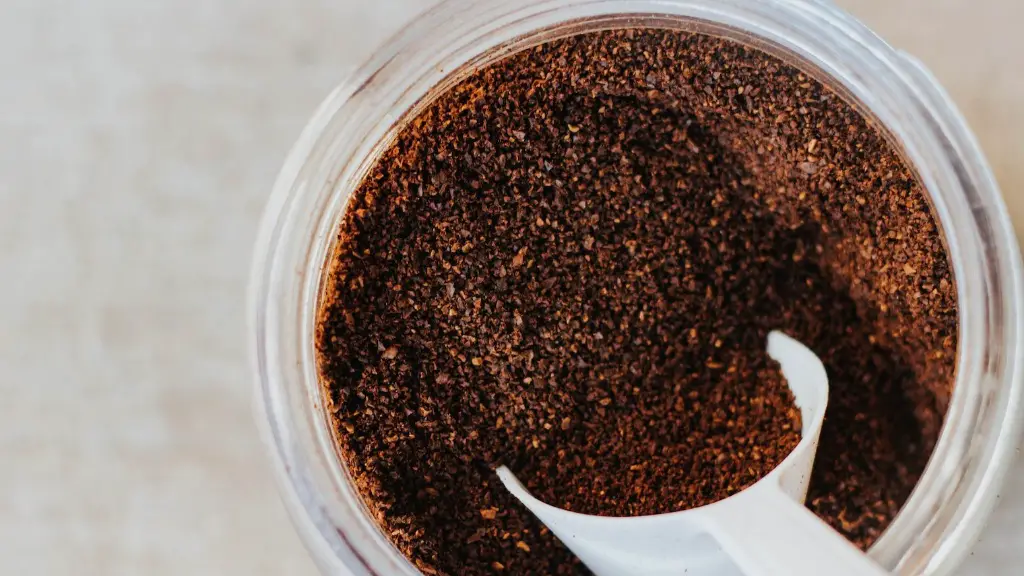The Pros and Cons of Drinking Coffee Everyday
As coffee is one of the most popular beverages in the world, many people wonder if it is healthy to drink coffee everyday. Coffee contains caffeine, the main active ingredient in coffee that gives it its stimulating effects. Caffeine is a stimulant that can increase your alertness, help you stay awake and focused, and boost your energy level. Coffee also contains many other beneficial compounds, such as antioxidants and minerals.
While coffee does have some beneficial qualities, drinking coffee everyday can also have some negative consequences. The most common side effects of caffeine are increased heart rate, increased blood pressure, insomnia, restlessness, and jitteriness. In addition, drinking large amounts of coffee can cause dehydration and irritability, as well as stomach problems such as indigestion and nausea.
Experts have differing opinions about the question of whether it is safe to drink coffee everyday. Some experts recommend that, since coffee can be dehydrating, it is best to limit your caffeine intake to three to four cups a day. Other experts say that it is perfectly safe to drink more than that, as long as you are aware of the effects of too much caffeine. However, it is important to be aware that some people may experience more negative effects than others.
Additionally, it is important to consider the quality of the coffee that you are drinking. Choosing organic and locally grown coffee is always the best option. Try to avoid pre-ground coffee as it often loses flavor and has low-quality ingredients. Also, look for coffees with low acidity to reduce the risk of irritation and heartburn.
Overall, it is up to an individual to decide if it is safe to drink coffee everyday. While some people may be able to tolerate larger amounts of caffeine, each person should assess their own body and determine what amount of coffee makes them feel energized and also comfortable. Furthermore, it is important to be aware of the different compounds in your coffee and how they affect you and how to choose the best quality coffee.
The Nutritional Benefits of Coffee
Besides providing an energy boost and helping with mental focus and alertness, drinking coffee can also offer some nutritional benefits. Coffee contains important minerals like magnesium and potassium, which can help with muscle contraction, nerve function, and hydration. It also contains antioxidants, which are important for fighting free radicals and reducing inflammation.
Some studies have also suggested that drinking coffee can reduce the risk for certain diseases. For example, research suggests that coffee may reduce the risk of type 2 diabetes and certain cancers, as well as reduce inflammation and improve heart health. Additionally, there is evidence that coffee may even reduce the risk of death from all causes.
However, it is important to note that these findings are based on observational studies and should be further researched to draw more conclusions. Additionally, it is worth noting that while coffee may provide some health benefits, it should not be seen as a health food and may not provide the same nutritional benefits as a balanced diet.
Overall, coffee can be a healthy and beneficial part of your diet. However, it is important to be mindful of how much coffee you are drinking and the quality of coffee that you are consuming in order to maximize the potential health benefits.
Tips for Avoiding Too Much Caffeine
Drinking too much caffeine can lead to some uncomfortable symptoms, such as anxiety, irritability, and trouble sleeping. Therefore, it is important to be aware of your caffeine intake and to be mindful of how much coffee you are drinking. Here are some tips for avoiding too much caffeine:
- Know your limits. Know how much caffeine is in the coffee you’re drinking and be aware of how your body reacts to caffeine.
- Avoid caffeine late at night. Caffeine can interfere with your sleep patterns and it should be avoided after 5 pm.
- Try decaffeinated coffee. If you’re sensitive to caffeine, try drinking decaffeinated coffee or herbal tea instead.
- Choose organic coffee. Organic coffee is free of chemical additives and preservatives.
In summary, be aware of the amount of caffeine you are consuming and be mindful of how your body reacts to it. By following these tips, you can maximize the potential health benefits of coffee and avoid any negative effects of too much caffeine.
How Coffee Impacts Your Energy Levels
Coffee is often consumed as a way to increase energy levels and focus, but it is important to be aware of how coffee impacts your energy levels. Caffeine works by blocking adenosine, a chemical that your body produces that makes you feel tired. Blocking adenosine allows more dopamine and norepinephrine to be released, which leads to increased alertness and energy.
However, it is important to be aware that the effects of caffeine can be short-lived. Caffeine does not produce a lasting increase in energy levels, and once the effects of caffeine wear off, you may experience a “crash” in energy. Therefore, it is best to only consume caffeine when you need a quick boost, rather than relying on it for a long-term energy boost.
In addition, caffeine can also interfere with your body’s natural sleep cycle. Too much caffeine can interfere with your ability to get restful sleep, which can lead to feeling tired and groggy during the day. Therefore, it is best to avoid drinking coffee late in the day and to ensure that you are getting enough sleep each night.
Overall, coffee can provide a quick energy boost, but it should be used in moderation and not relied upon as a source of long-term energy. Additionally, it is important to be aware of how coffee impacts your sleep and to ensure that you are still getting enough restful sleep each night.
Practical Tips for Making Healthy Coffee Choices
Coffee can be a great part of a balanced and healthy diet, but it is important to be mindful of your choices when making coffee. Here are some practical tips for making healthy coffee choices:
- Choose organic coffee. Organic coffee is free of chemical additives and preservatives.
- Choose whole beans over pre-ground coffee. Whole beans preserve flavor and preserve nutrients.
- Avoid added sugars and artificial sweeteners. Sweeteners can add a lot of unnecessary extra calories to your coffee.
- Consider dairy alternatives. Dairy-free milks, like almond, coconut, or oat milk, can be a healthier option than traditional cow’s milk.
Overall, making healthy coffee choices can help you to maximize the potential health benefits of coffee and make it a part of a balanced, nutritious diet.
The Role Of Coffee In Your Lifestyle
Although it is important to be mindful of your caffeine intake, coffee can still be a great addition to any lifestyle. For example, a cup of coffee can provide a great way to start the morning, provide energy and focus during the day, and help you relax and unwind after a long day. Additionally, coffee can be a great way to socialize and build relationships with friends and family.
In addition, there are many ways to enjoy coffee without drinking it. Using coffee in recipes is a great way to add a rich, complex flavor to many dishes. Additionally, there are a variety of beauty products that use coffee, such as facemasks, scrubs, and body lotions, which can help to reduce inflammation, brighten skin, and leave you feeling refreshed.
Overall, coffee can be a great part of any lifestyle. It can be used to provide energy and focus, boost your mood, and improve your overall wellbeing.
The Environmental Impact of Coffee
Though coffee can be healthy for people, it can also have a negative environmental impact. Coffee plants require a lot of water, so their cultivation can lead to water shortages and deforestation. Additionally, most coffee is grown in monocultures, where only one type of plant is cultivated, which can result in soil erosion and degradation.
In addition, coffee production produces a lot of waste that can be damaging to the environment. Coffee husks, filters, and packaging can all end up in landfills and contribute to plastic pollution. Additionally, coffee production also requires energy and resources, which can lead to air pollution.
In order to reduce the environmental impact of coffee, it is important to choose sustainably sourced coffee. Look for coffees that are shade-grown and certified by sustainable sources such as the Rainforest Alliance or Fair Trade. Additionally, buying coffee in bulk is also a great way to reduce waste.
Overall, coffee can be a wonderful addition to any lifestyle, but it is important to be aware of the environmental impact of coffee production. By being mindful of your coffee choices, you can help to reduce the environmental impact of your coffee habits.





